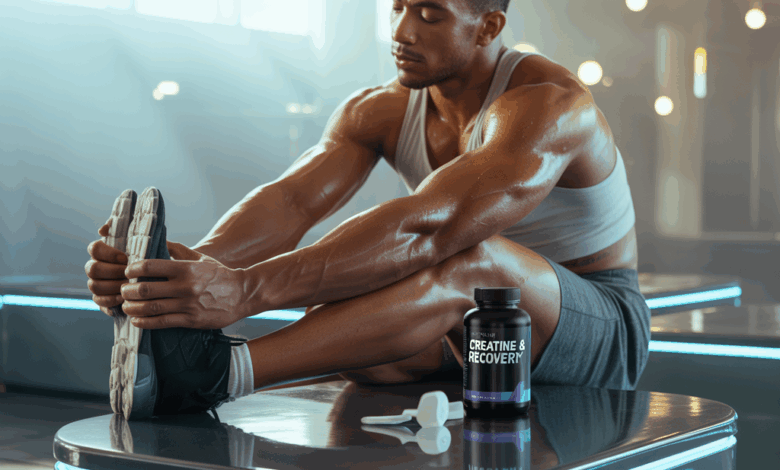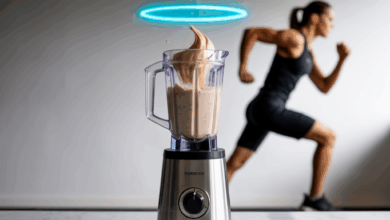Can I Take Creatine When Im Sick

You’re curled up on the couch, tea in hand, and a little white tub of creatine on the kitchen counter—suddenly the question pops into your head: “can i take creatine when im sick”? Whether you’ve got a mild cold or something worse, deciding whether to keep your supplement routine can feel confusing. Let’s break it down in plain language so you can make a safe, effective choice without overthinking it.
Quick answer: It depends on the illness and symptoms
Short version: if you have mild symptoms (runny nose, slight sore throat, no fever), you can usually continue creatine at your normal dose. If you have a fever, dehydration, severe gastrointestinal symptoms (vomiting, diarrhea), or an existing kidney condition, pause and check with a healthcare provider. Below we’ll explain why, give practical tips, workout variations, and real-world examples to help you decide.
How creatine works and why it matters during illness
Creatine is a naturally occurring compound that helps regenerate ATP—the energy currency of your cells—especially during short, intense efforts like lifting or sprinting. It also draws water into muscle cells, which can influence hydration status. That cellular water shift is usually harmless, but during illness it’s one of the reasons to be mindful of continuing supplementation.
Key considerations
- Hydration: Illnesses that cause fever, sweating, vomiting, or diarrhea increase fluid loss. Creatine increases intracellular water, so overall hydration must be maintained.
- Kidney function: For healthy people, creatine is safe when used responsibly. If you have kidney disease or reduced renal function, consult your doctor before using or resuming creatine.
- Gastrointestinal distress: If creatine upsets your stomach when you’re already nauseous, stop and resume when symptoms improve.
Can I take creatine when im sick? — A closer look
Let’s break decisions into practical scenarios so you know what to do:
Mild cold or congestion (no fever)
- Recommendation: You can usually keep taking creatine at your maintenance dose (3–5 g/day).
- Why: No major risk to hydration or kidney stress; continuing maintains your supplementation routine and prevents needing to reload later.
- Tip: Stay hydrated and don’t push intense workouts—opt for light activity like walking or mobility work.
Fever, body aches, or severe fatigue
- Recommendation: Pause creatine until fever resolves and you’re rehydrated.
- Why: Fever increases metabolic stress and fluid losses; recovery should focus on rest, fluids, and nutrition.
- Tip: Resume creatine at your maintenance dose—no need to reload—once you’re well.
Gastrointestinal symptoms (vomiting, diarrhea)
- Recommendation: Stop creatine until GI symptoms subside and you can tolerate fluids and food.
- Why: Ongoing vomiting or diarrhea causes dehydration and electrolyte loss; added supplements may worsen nausea.
Underlying kidney problems or medications
- Recommendation: Consult your healthcare provider before taking or resuming creatine.
- Why: Kidney function and drug interactions require professional oversight.
Practical fitness tips while you’re sick
Being ill doesn’t mean you must completely abandon movement. Here’s how to keep momentum without overtaxing your body:
- Prioritize rest and sleep—recovery speeds healing more than training through illness.
- Choose low-intensity workouts: mobility drills, yoga, short walks, or gentle cycling are fine for mild symptoms.
- Shorten sessions: cut volume by 50% and keep intensity low if you decide to train.
- Hydration and electrolytes: sip water, broth, or an electrolyte mix, especially if you paused creatine or are sweating/feverish.
- Nutrition: focus on protein, complex carbs, and immune-supporting micronutrients (vitamin C-rich fruits, zinc-containing foods) to help tissue repair and immunity.
Workout variations for sick or recovering days
- Active recovery: 20–30 minute walk + 10 minutes stretching.
- Mobility circuit: hip openers, thoracic rotations, shoulder band work—3 rounds, low intensity.
- Bodyweight strength: half-volume push-ups, air squats, plank holds—stop if you feel worse.
Real-world examples
Example 1: Jamie is a runner who wakes with a scratchy throat and sniffles before a scheduled tempo run. She keeps her morning creatine dose, skips the hard workout, does an easy 30-minute jog, and sleeps more. She recovered in two days and never had to reload.
Example 2: Mark gets a stomach bug with vomiting and diarrhea. He stops creatine, focuses on rehydration and electrolyte replacement, and waits 4–5 days after symptoms resolve before resuming supplementation at 5 g/day.
Resuming creatine after a break
If you paused creatine during illness, you generally do not need to do a full loading phase again. Simply restart with your maintenance dose (3–5 g/day). If you prefer, a short 3–5 day loading at 10–20 g/day divided doses will bring stores back faster, but it’s not necessary for long-term benefits.
When to contact a healthcare provider
- If you have kidney disease or are on medications affecting renal function.
- If you experience persistent dehydration, fainting, or severe symptoms.
- If you’re unsure whether symptoms are serious—always better to check.
Frequently Asked Questions
Not usually. Creatine itself doesn’t suppress the immune system. However, if you’re dehydrated, have a fever, or are experiencing GI symptoms, taking creatine can complicate hydration and tolerance. Pause until you’re rehydrated and symptom-free.
Yes—if symptoms are mild and you feel well enough for light training. Stick to maintenance dosing (3–5 g/day), reduce workout intensity, and prioritize rest and fluids.
No. After a short break, resume your maintenance dose and you’ll regain normal muscle creatine levels over time. A loading phase is optional and not required.
Conclusion: can i take creatine when im sick?
So, can i take creatine when im sick? It depends on your symptoms. For mild colds without fever, continuing your maintenance dose is typically fine. For fever, significant dehydration, vomiting, or if you have kidney concerns, pause and consult a healthcare provider. Focus first on rest, hydration, and proper nutrition—then ease back into training and supplementation when you’re recovered.
Want more guidance on how to adjust workouts and meals when you’re not 100%? Check out our workout routines, browse smart strategies in our nutrition guides, and learn lifestyle recovery tips on our wellness tips page. If you found this helpful, sign up for updates and practical health advice to stay on track—even when life throws you a sick day.





